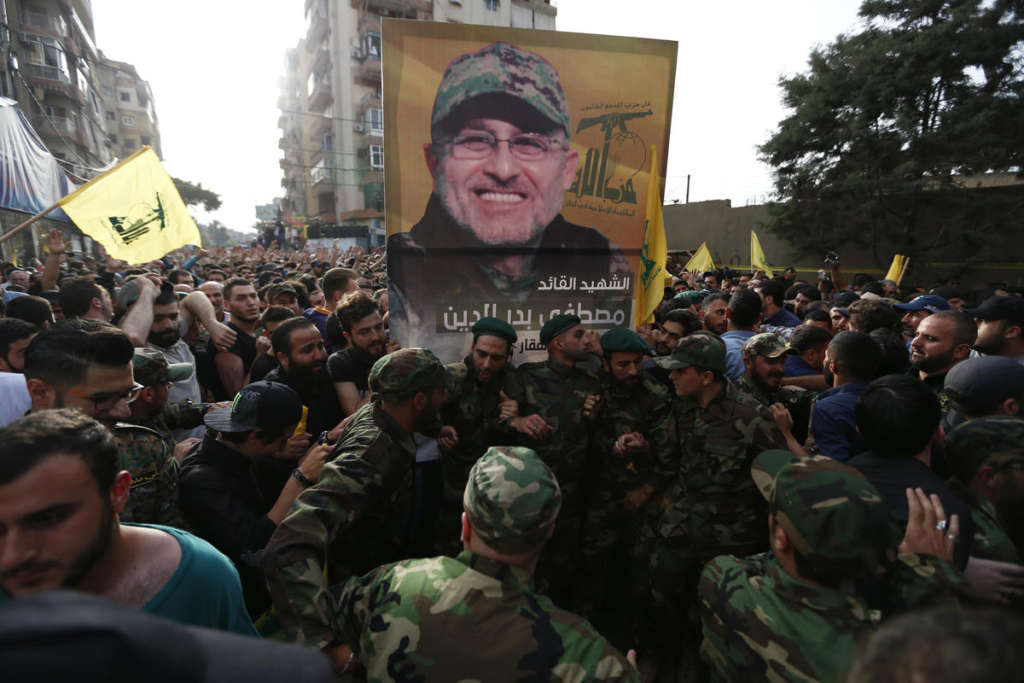Beirut-The municipal elections that were held in Lebanon this month showed a huge drop in the support for Lebanese political parties, including the so-called Hezbollah.
The rise of independents, influential families and the Lebanese Communist Party was a sign that Hezbollah’s role at the popular Shi’ite base has begun to diminish as a result of its interference in the Syrian war and the rising economic challenges that Lebanon is facing.
Many believe that Hezbollah had built its reputation for fighting Israel and for leading to or contributing to Israel’s withdrawal from Lebanon in 2000.
Yet this organization, which is religiously, politically and militarily linked to Iran, is facing a growing problem. With its expansion outside Lebanon’s border and its belief that it will become stronger than ever, the party has become more fragile.
Since 2012, Hezbollah has given up on its essential role to fight Israel by joining the head of the Syrian regime, Bashar Assad, in the war against rebels – most of them Sunnis – trying to topple him.
According to sources close to Hezbollah, the party has between 5,000 to 7,000 fighters deployed in Syria, where more than 1,500 party members died in the battlefield.
A former Hezbollah advisor, who refused to be identified, told Asharq Al-Awsat that the group’s popular base continues to back its interference in Syria.
Kamal Feghali, who is an expert in statistics and documentation, agreed with the advisor.
Feghali said: “The alliance between Hezbollah and Amal Movement is political and is based on the slogan of the resistance.”
“Despite all the criticism directed at Speaker Nabih Berri, who heads the Shi’ite Amal Movement, nobody can deny the development projects carried out in the South,” Feghali told Asharq Al-Awsat.
Southern Lebanon is one of the governorates that enjoy advanced infrastructure, he said.
In addition to that, Hezbollah finances several institutions that have made many development achievements.
The result of this support was obvious in the election victories made by Hezbollah in its strongholds in Baalbek-Hermel, Beirut’s southern suburbs and many towns and villages in southern Lebanon, added Feghali.
But the devil is in the detail.
Despite Hezbollah’s stranglehold on Shi’ite areas, the possession of weapons and its alliance with Amal, a number of independent and influential families, in addition to the Lebanese Communist Party, were able to make partial gains in several areas.
Analyst and Expert in Islamic Affairs Qassem Qassir told Asharq Al-Awsat that “Hezbollah preserved its popular base. Yet there were some cases of rebellion.”
Meanwhile, the party is facing growing challenges linked to the war in Syria, in particular after the assassination of its top military commander, Mustafa Badreddine, who is the relative of slain Hezbollah official Imad Mughniyeh.
Badreddine was one of five Hezbollah suspects accused by the U.N.-backed Special Tribunal for Lebanon of involvement in the 2005 assassination of former Lebanese Prime Minister Rafik Hariri.
While some sides pointed their fingers at Israel, Hezbollah blamed Syrian rebels for Badreddine’s murder in a shelling.
Several of the party’s top officials were killed in the past years. Among them were Jihad Mughniyeh and Samir Qantar.
The continued losses of the Hezbollah leadership and its inability to achieve all-out victory in Syria, in addition to Lebanon’s gloomy economic situation are expected to put more strain on the party, which seems to have entered a narrow tunnel.
